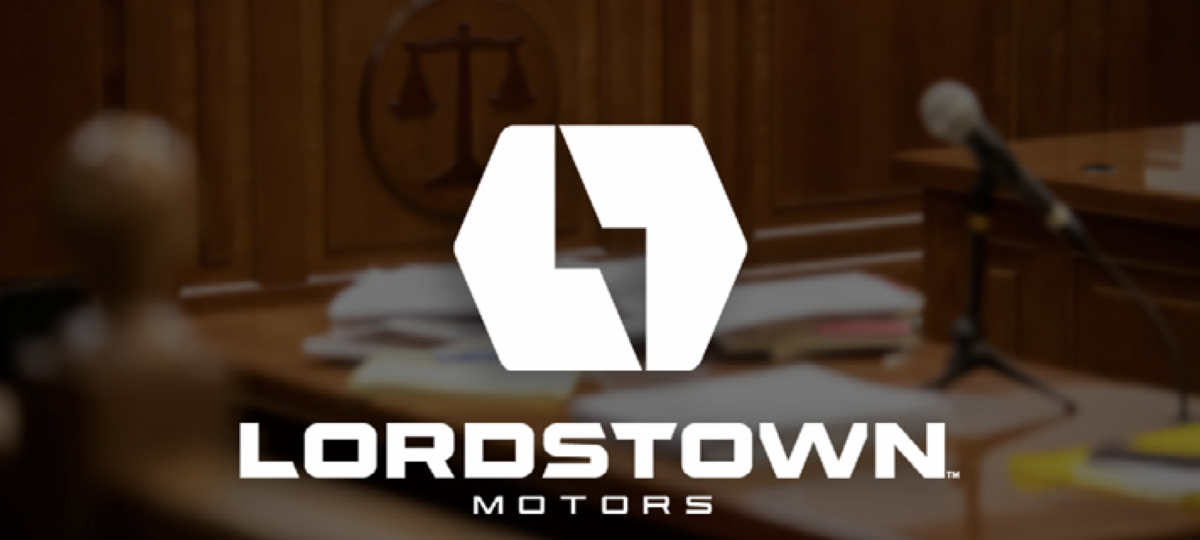SEC, Foxconn, Investors Oppose Lordstown Motors Reorganization Plan
LORDSTOWN, Ohio – The U.S. Securities and Exchange Commission and Foxconn are objecting to the Chapter 11 disclosure and reorganization plan filed Sept. 1 by Lordstown Motors Corp.
So, too, are the failed EV startup’s investors – the plaintiffs in lawsuits that accuse the company of securities fraud.
The SEC says its investigation is continuing into whether the company and others “may have engaged in prepetition activities that violated the federal securities laws.”
If so, the SEC would be entitled to “disgorgement of ill-gotten gains and/or civil monetary penalties” – payment of which is not specifically carved out and set aside in the disclosure plan.
Lordstown Motors filed bankruptcy June 27.
The disclosure plan sets forth how the remaining assets of Lordstown Motors would be distributed: Who gets first, second, third, fourth and fifth priority. Last in line would be Foxconn, should the plan be approved.
A hearing is scheduled for Oct. 18 before Judge Mary F. Walrath who presides in U.S. Bankruptcy Court in Delaware.
On Sept. 29, Lordstown Motors announced it will sell certain assets for $10 million to LAS Capital and Stephen S. Burns, founder and former CEO of the company and majority equity holder of LAS Capital. The deal includes “specified assets … related to the design, production and sale of electric light duty vehicles focused on the commercial fleet market free and clear of liens, claims, encumbrances and other interests,” plus the assumption of “certain specified liabilities.” It excludes the company’s approximate $100 million in cash.
Foxconn’s objection to the disclosure and reorganization plan rests on two key arguments.
First, Foxconn cites the 11-count adversary complaint filed by Lordstown on the day it declared bankruptcy, “attempting to pin blame on Foxconn for their failures in order to divert attention from their own mismanagement, misrepresentations to investors and repeated inability to execute on their business plans,” court papers state.
The adversary complaint accuses Foxconn of breach of contract and fraud and seeks to “equitably subordinate Foxconn’s preferred and common stock interests [in Lordstown Motors] including Foxconn’s $30 million preference.”
That is, Lordstown Motors doesn’t want Foxconn to get one dime from the stock it owns in the company – and wants Foxconn to pay “billions of dollars” in damages, according to court papers.
On Sept. 29, Foxconn filed a motion to dismiss the adversary complaint, arguing Lordstown Motors’ claims “are subject to mandatory arbitration and must not be adjudicated in the context of [bankruptcy] plan confirmation.”
In its objection to the disclosure and reorganization plan, Foxconn states that Lordstown Motors is attempting “to end-run their own complaint, subvert Foxconn’s due process protections in the adversary proceeding, and litigate the equitable subordination remedy at plan confirmation …
“This cannot be done,” Foxconn argues, before Lordstown exhausts legal remedies in the adversary case.
Foxconn’s second argument is that Lordstown Motors is essentially “liquidating. There is no operational, business or reorganization need” to subordinate Foxconn’s $30 million preferred stock claim. Instead, Lordstown “should do what countless liquidating debtors do and confirm a liquidating plan as expeditiously as possible while deferring significant litigation to be dealt with post-confirmation.”
Foxconn previously asked the court to convert the Chapter 11 case to Chapter 7 liquidation, which Walrath denied pending the solicitation of bids for Lordstown’s assets.
The SEC objection to Lordstown Motors’ disclosure plan takes note that the proposed buyer of its remaining assets is “an entity affiliated with a former insider.”
The SEC argues that the document “lacks information for the commission to understand how a commission claim would be treated or how much it or similarly-situated claims would recover.”
The plan also fails to show how Lordstown Motors “will comply with any ongoing reporting obligations under the federal securities laws, the SEC argues.
Investors objecting to the plan offer similar arguments. They augment their case by stating Lordstown Motors seeks to release all legal claims through bankruptcy court, which it cannot do.
Copyright 2024 The Business Journal, Youngstown, Ohio.



